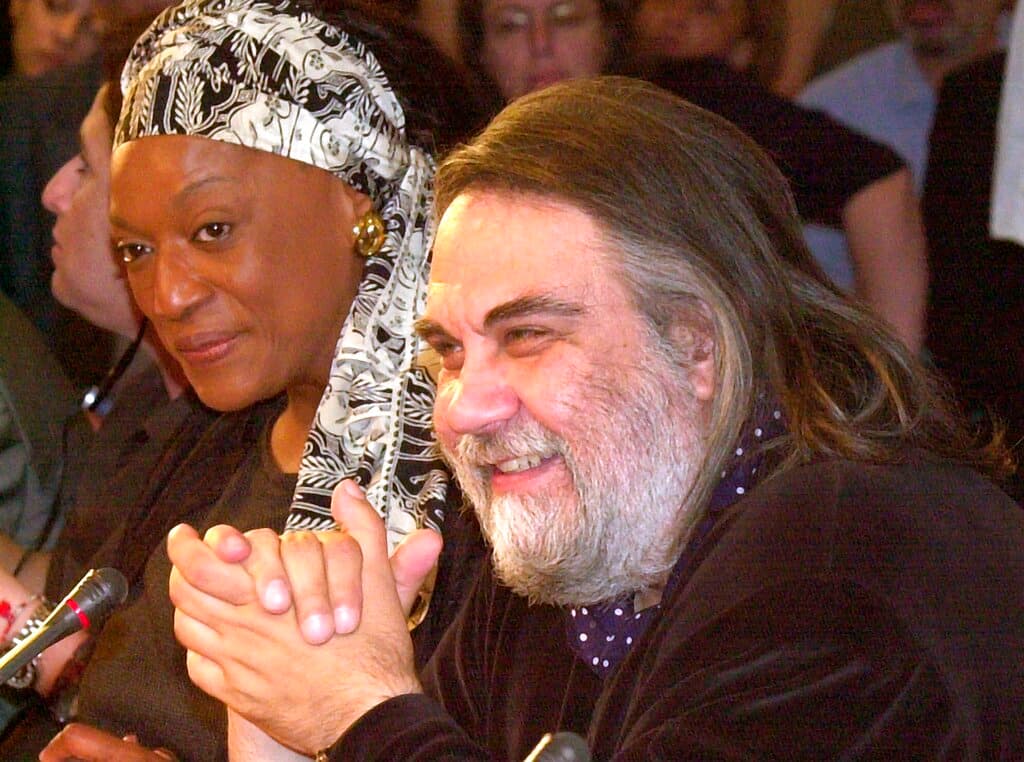Vangelis, Champion Greek Composer, Dies at 79
‘Chariots of Fire,’ the composer’s signature tune, is so instantly recognizable that it has spawned countless slow-motion parodies — but so solid is the structure and atmospherics of the original that it holds up even decades after its debut.

Twenty-two seconds into the sweeping anthem for the 1981 film “Chariots of Fire,” its composer, Vangelis, who has died at Paris at 79, inserted a chord that catapulted the Greek to international fame and elevated his oeuvre to the pop culture firmament.
The Oscar-winning score to the movie, about two British runners competing in the 1924 Olympics, was arguably more memorable than the film itself and that chord, preceded by an iconic horn-call, was synonymous with the new age of the synthesizer that, love it or hate it, marked a new direction in pop music that would define the coming decade.
Vangelis, born Evangelos Odysseas Papathanassiou on March 29, 1943, near the city of Volos in central Greece, was a virtuoso musician who started playing the piano at age 4, though he received no formal training and even claimed he never learned to read notes.
What Vangelis lacked in training he more than made up for in the emotional resonance that he wove into his richly textured, multilayered melodies. “Chariots of Fire,” the composer’s signature tune, is so instantly recognizable that it has spawned countless slow-motion parodies — but so solid is the structure and atmospherics of the original that it holds up even decades after its debut.
News of Vangelis’s death dominated Greek television Thursday. The newspaper Ta Nea reported that the pioneering composer had been hospitalized in France with coronavirus, but he had also reportedly been suffering from cancer. Prime Minister Mitsotakis and other government officials expressed their condolences Thursday. “Vangelis Papathanassiou is no longer among us,” Mr. Mitsotakis tweeted.
While Vangelis’s breakthrough came with the score for “Chariots of Fire,” he wrote the music for other memorable movies including director Ridley Scott’s 1982 science fiction masterpiece “Blade Runner.” In that dark film, which stars Harrison Ford as a special agent on a mission to hunt down deranged androids known as replicants, the music Vangelis wrote to accompany the “tears in rain” monologue, uttered by late actor Rutger Hauer, has attained cult status in the cinema world.
The composer’s earliest brush with success came with his first Greek pop band in the 1960s, but as the AP reported, Vangelis evolved into a one-man quasi-classical orchestra, using a vast array of electronic equipment to conjure up his enormously popular, undulating waves of sound. A private, humorous man — burly, with shoulder-length hair and a trim beard — he quoted ancient Greek philosophy and saw the artist as a conduit for a basic universal force. He was fascinated by space exploration and wrote music for celestial bodies, but said he never sought stardom himself.
“Orchestration, composition — they teach these things in music schools, but there are some things you can never teach,” he said in a 1982 interview. “You can’t teach creation.”
Vangelis wrote the scores for “1492: Conquest of Paradise” (1992), Oliver Stone’s “Alexander” (2004), as well as for “Missing” (1982) and “Antarctica” (1983), but refused many other offers for film scores. The composer was also famously wary of how record companies handled commercial success, claiming “you find yourself stuck and obliged to repeat yourself and your previous success.”
While his movie soundtracks earned him his greatest celebrity, subsequent to those he turned out one studio album after another, all with chiefly electronic instrumentation but each a thematic departure from the one before. “The City,” released in 1990, is a brooding, dreamy acoustic journey across an imagined metropolis that could be New York or Melbourne, with track listings such as “Dawn,” “Morning Papers,” and “Side Streets.” The entire album was produced inside a hotel room in Rome.
British singer Paul Young appears on one track in 1995’s ethereal “Voices.” Vangelis’s evocative 1996 studio album “Oceanic,” nominated for a Grammy Award in the Best New Age Album category, conjured visions of Greek island afternoons idylls and mermaids. He followed that up two years later with “El Greco,” a series of 10 electronic movements meant to reflect the life and works of the Greek artist born as Dominikos Theotokopoulos. One of the movements was layered with vocals by the soprano Montserrat Caballé.
A purist at heart with a keener commercial acuity than perhaps he would ever have cared to admit, Vangelis was also characteristically Greek in both his devotion to his craft and in his capacity to generate intrigue. Little was known of his personal life, though he was reportedly married twice.
The movies he scored sometimes took on lives of their own, and sometimes his music gave them life he never intended. A short track from his 1979 album “Opéra Sauvage” appears in Peter Weir’s 1982 film “The Year of Living Dangerously.” In a key scene, a strapping young journalist played by Mel Gibson opens his office door to a soaking wet British spy played by Sigourney Weaver, unleashing an epic sequence that led the New York Times’s film critic, Vincent Canby, to aver at the time: “That, friends, is heat.”
For that bit of unforgettable heat and many another, the music of Vangelis supplied not just the sound, but the light.

